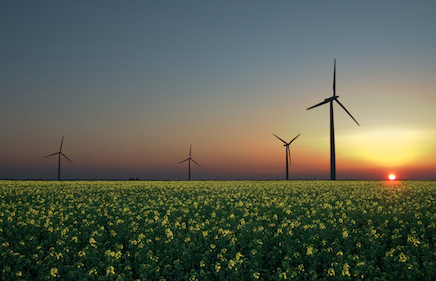Canada is a country with a large amount of energy available for refinement and distribution, thus energy security in Canada takes on a different form from that of other states in the international system. Energy security is becoming a prominient concern for international relations due to the increase in global demand for energy, and presents an interesting situation for Canada’s energy sector.
Defined by the International Energy Agency (IEA) as “the uninterrupted availability of energy sources at an affordable price” with both long term and short term security concerns, energy security is an ever changing aspect of the global economy. In the long term, economic and environmental developments are key aspects of energy security. In the short term, it revolves around shifts in demand, supply, and market fluctuations. The meaning of energy security will change from state to state, and this certainly holds true in Canada.
With supply being a key focus of energy security in many states, agencies such as the IEA ensure that there are emergency response measures in place in case of supply disruptions. Individual members of the IEA, for example, focus on achieving negative social and economic fallout in the case of supply disruptions.
Canada’s energy security, however, is based on a variation of this theme. As a highly resource rich state, Canada’s energy security is not as tied to supply as other states in the international system. Supply is still a key issue, however, especially for those regions which import energy from other petroleum producing states. As a collaborative 2010 report released by the University of Ottawa and the Canadian Security Intelligence Service highlights, “despite being a net energy exporter, the country relies on imports for nearly half of its domestic oil consumption.”
For Eastern Canada especially, imports represent the majority of the region’s energy consumption despite Canada’s large reserves in other areas of the country. With the transportation of crude oil an already difficult and controversial task, importing oil and natural gas to these areas is more practical from an energy standpoint. However, the key area of Canada’s energy security focuses on the global demand for its energy exports.
Currently, Canada’s most common energy sources are oil, hydroelectric power, natural gas, coal, nuclear, and other renewable sources. With oil, hydroelectric, natural gas, and nuclear energy featuring most prominently, there is a lot of room for more sources of renewable energy, as well as the diversification of exports.
In 2012, the IEA reported that almost 40% percent of the oil produced domestically in Canada is exported. The majority of those exports go directly to the United States, accounting for approximately 28% of the United States’ crude oil imports.
those exports go directly to the United States, accounting for approximately 28% of the United States’ crude oil imports.
The vast majority of the known oil in Canada resides in Alberta’s highly contested oil sands. Canada’s primary energy security concerns, thus, rely heavily on the ability to refine, distribute, and market its energy reserves. Canada’s risk in the disruption of energy supplies is low compared to other states that do not have the large resource stores that Canada possesses. However, that reliance on the demand for Canada’s energy reserves means that fluctuations in demand and supply can lead to detrimental consequences for Canada’s energy sectors.
Canada’s main threat to energy security, then, is primarily based on fluctuations in the demand for Canadian exports. As states such as the United States shift their reliance away from Canadian imports, there is a need for the “diversification” of Canada’s energy exports to other areas of the world. This concept is not a new one, but recent developments with the controversial Keystone XL and the Northern Gateway pipelines reveal issues with Canada’s energy sector that should be addressed.
Parts Two and Three of this three-part series will discuss some of these issues, including the various pros and cons concerning Alberta’s oil sands, renewable energy, nuclear energy, and how the environment-energy nexus is reconciled (or not) in Canada.
[quote align=”center” color=”#999999″]The NCC is holding an Energy Security Roundtable with keynote speaker Ron Oberth, President of Organization of Canadian Nuclear Industries (OCI), Rob Swartman, CEO of Solcan, Hugh Moran, Executive Director of Ontario Petroleum Institutes (OPI) and Professor Dimitrov, Associate Professor from University of Western Ontario. Come join the discussion on November 6th, 2014 at the University of Western Ontario. [/quote]




